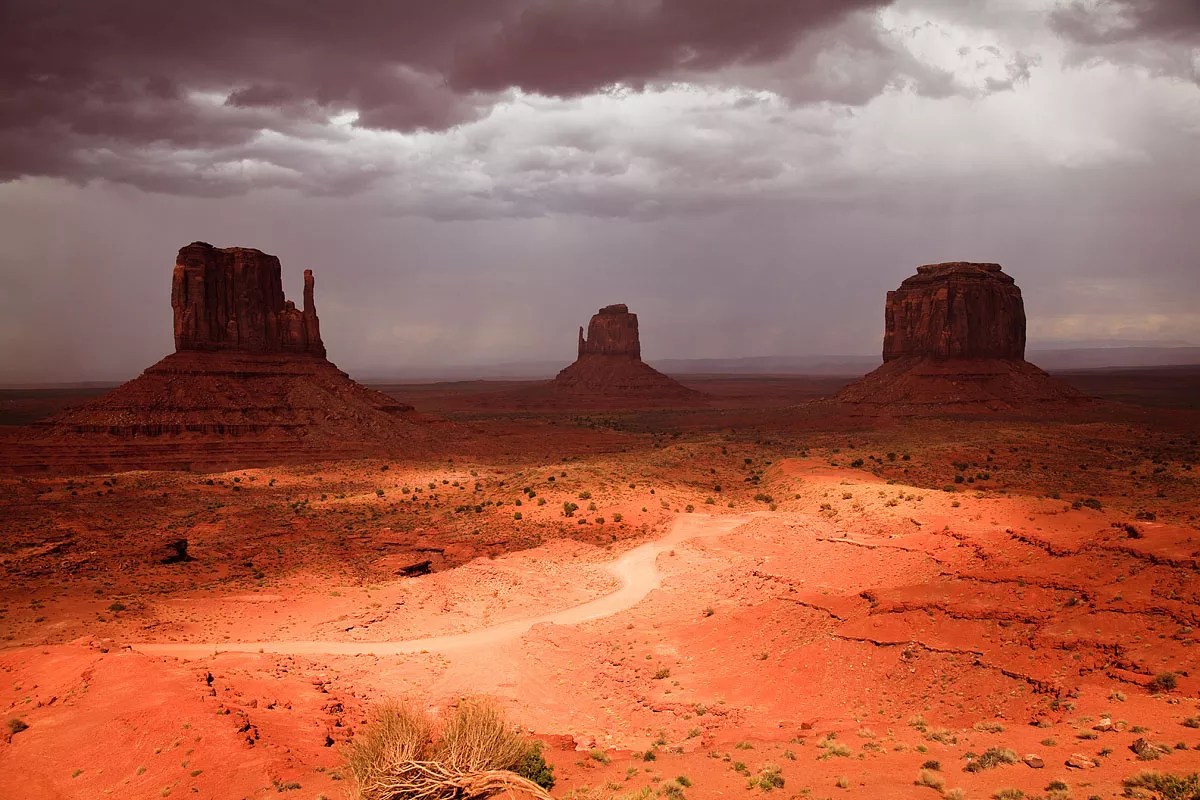
Peter Zamorowski/shutterstock.com

Audio By Carbonatix
The Navajo Nation is moving to close all Navajo Nation Tribal Parks, including four popular sites in Arizona, due to concerns about the spread of the novel coronavirus.
“We know that there are many concerns about the in-flow of tourism,” said Jonathan Nex, president of the Navajo Nation. “And while we don’t have oversight over all tourist attractions, we also want to let you know that we’re addressing the public concern.”
The announcement follows the Nation’s move to declare a state of emergency earlier this week for the COVID-19 pandemic, also known as “Diko Ntsaaígíí-Náhást’éíts’áadah” in the Navajo language.
The president said the Navajo Nation Division of Natural Resources informed him late Thursday afternoon that they will close public parks and recreational areas under tribal control as a precautionary measure. Nez said they’re also meeting with the U.S. National Park Service to receive full confirmation for the closure of every park on the Navajo Nation Reservation this afternoon.
There are no confirmed cases of the novel coronavirus on the Navajo Nation, a sovereign nation larger than ten U.S. states. But surrounding areas which boast large numbers of Navajo people, including Arizona, New Mexico, Utah, and Colorado, have all confirmed multiple cases of the virus.
The executive branch has directed employees who recently traveled to these areas with confirmed cases of the virus (referred to as “hot spots” in a Friday press conference about the Navajo Nation’s COVID-19 prevention efforts) to self-quarantine for approximately 14 days.
“We have a large population of Navajo people that reside in many states, including the four states that are mentioned,” said Nez. “So it’s very important that we remain proactive.”
On Wednesday, the Navajo Nation Commission on Emergency Management voted 4-0 in favor of the declaration.
The move came hours after Governor Doug Ducey declared an emergency in Arizona, following the confirmation of the ninth case of the virus in the state.
The same day, the Navajo executive branch also issued a travel ban on executive employees, requiring them to restrict all off-Nation work-related travel until further notice.
The state of emergency has monetary implications – it means they may now be eligible for reimbursement by the Federal Emergency Management Agency (FEMA), a branch of the United States Department of Homeland Security, for coronavirus expenses.
Nez said the Navajo Nation is already in talks with the White House to ensure Indian Health Service facilities and other hospitals receive financial support from the $8.3 billion U.S. coronavirus funding bill, which was signed into law by President Donald Trump today.
“Usually grants and the type of funding that goes through the CDC goes through states, and then finally goes to tribes,” said Nez. “And we don’t want that to happen. So we’re talking with the White House and our Congressional delegation to make sure that those dollars come directly to tribes.”
Nez and Jared Touchin, communications director for the Office of the President and Vice President, said they do not yet know the estimated amount of expenses the Navajo Nation has incurred in their prevention efforts.
“Just know that our nation, the Navajo Nation, is keeping track of all of their expenditures on these types of efforts, and every future expenditure is being identified,” said Nez. “So we’re looking at getting reimbursed. Because right now, we’re utilizing a lot of our general fund dollars.”
The Office of the President and Vice President said they would also be introducing legislation to request $3 million from the Nation’s Unreserved, Undesignated Fund Balance (UUFB) for additional coronavirus prevention funding later today.
The state of emergency, travel bans, and subsequent closures come two weeks after Navajo leaders established the Navajo Nation COVID-19 Preparedness Team to coordinate monitoring and prevention efforts related to the virus.
The Navajo president said they’re continuing to inform the Navajo community through radio announcements in the Navajo language, and implementing door-to-door outreach to Navajo individuals with underlying conditions by Community Health Representatives and Health Education Program officials. Nez said they’re also advising school board officials to be aware of Centers for Disease Control and Prevention recommendations and consider closing schools.
They have also translated all CDC materials related to the coronavirus into the Navajo language, according to Navajo Department of Health Executive Director Dr. Jill Jim.
“Two years ago, we commemorated 150 years of the signing of the treaties,” said Nez. “And you’ve heard me say many times that we were taken off these land, and we’ve walked through some hardships. But we persevered. We’re overcomers. As indigenous people, we went through this with tuberculosis, we went through H1N1, we went through SARS, we went through Zika. Now, we will overcome this virus as well.”
Navajo Tribal Park closures in Arizona include Four Corners Monument, Little Colorado River Tribal Park, Canyon de Chelly Campground, and Lake Powell Navajo Tribal Park, also known as Antelope Canyon.